SDG 08: Decent Work and Economic Growth
The General Education capstone course, "Financial Planning: A Pre-emptive Measure to Various Social Issues," taught by Dr Archimedes David Guerra, guided students to explore social issues arising from inadequate financial planning. It emphasised the importance of proficient financial management and the need for inclusive economic development. As part of their active learning, students participated in the "Personal Finance Ambassador Programme," taking on the role of ambassadors to promote financial literacy among their peers at the University. Through personal finance workshops, social media campaigns, and board games, the students sharpened their skills in financial planning and were motivated to establish goals that promote their well-being as well as communal welfare.
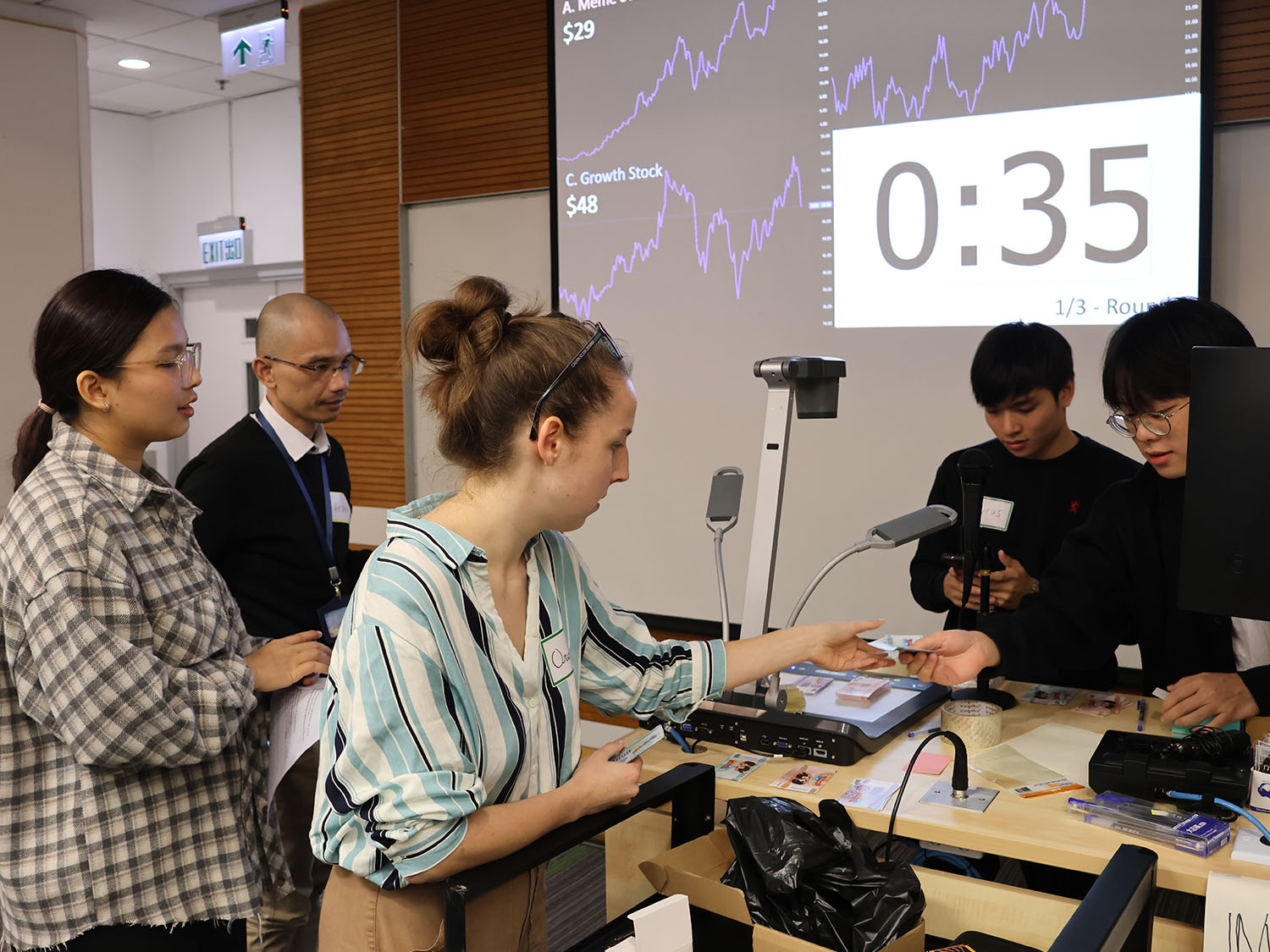

First-ever student art auction
The first-ever art auction at HKBU, organised by the Career Centre, showcased 18 art pieces by 12 talented young artists from the University. The event attracted an enthusiastic crowd of over 40 art collectors, representatives from leading galleries, and distinguished guests, who placed their bids on the artworks during the auction. The auction's primary aim was to empower students from the Academy of Visual Arts and recent graduates by providing a dynamic platform to showcase their work and engage directly with the art market. This experience offered them a taste of real-world commerce and critique, which is vital for their professional growth in the art industry.
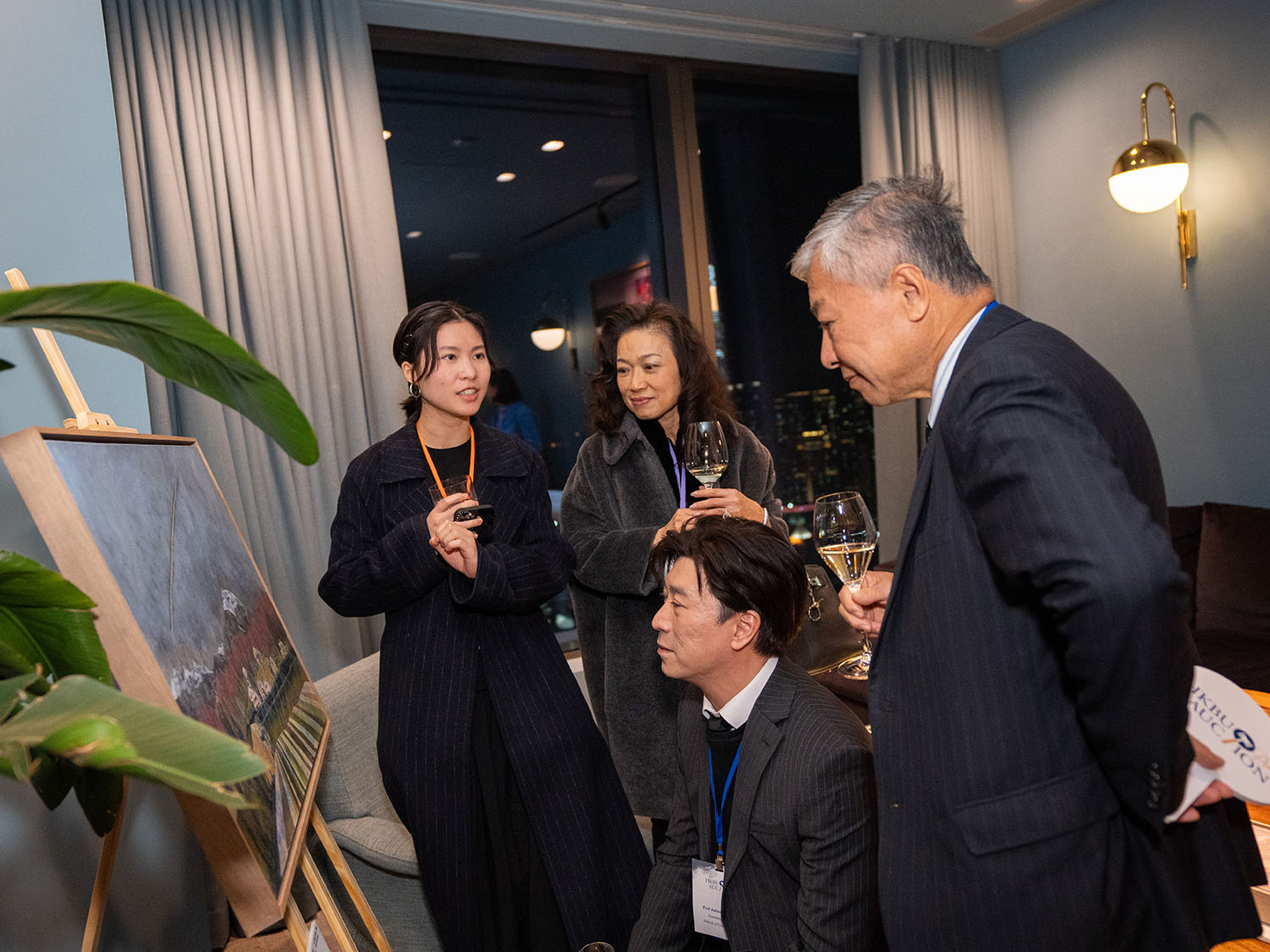

Career horizons and connections
Co-organised by the HKBU Alumni Association and the Career Centre of the Office of Student Affairs, "BUAA & Friends: Talent Gathering" on 16 March 2024 included a forum on innovative decision-making in response to post-COVID economic challenges, featuring two expert speakers. The event also comprised a networking session that facilitated interactions among 45 students, 51 industry professionals, Greater Bay Area (GBA) experts, and 10 alumni representatives from diverse fields. This provided a platform for building relationships, gaining insights into the employment landscape, enhancing students' understanding of the GBA's economic development and job market, and offering valuable opportunities for future career development.
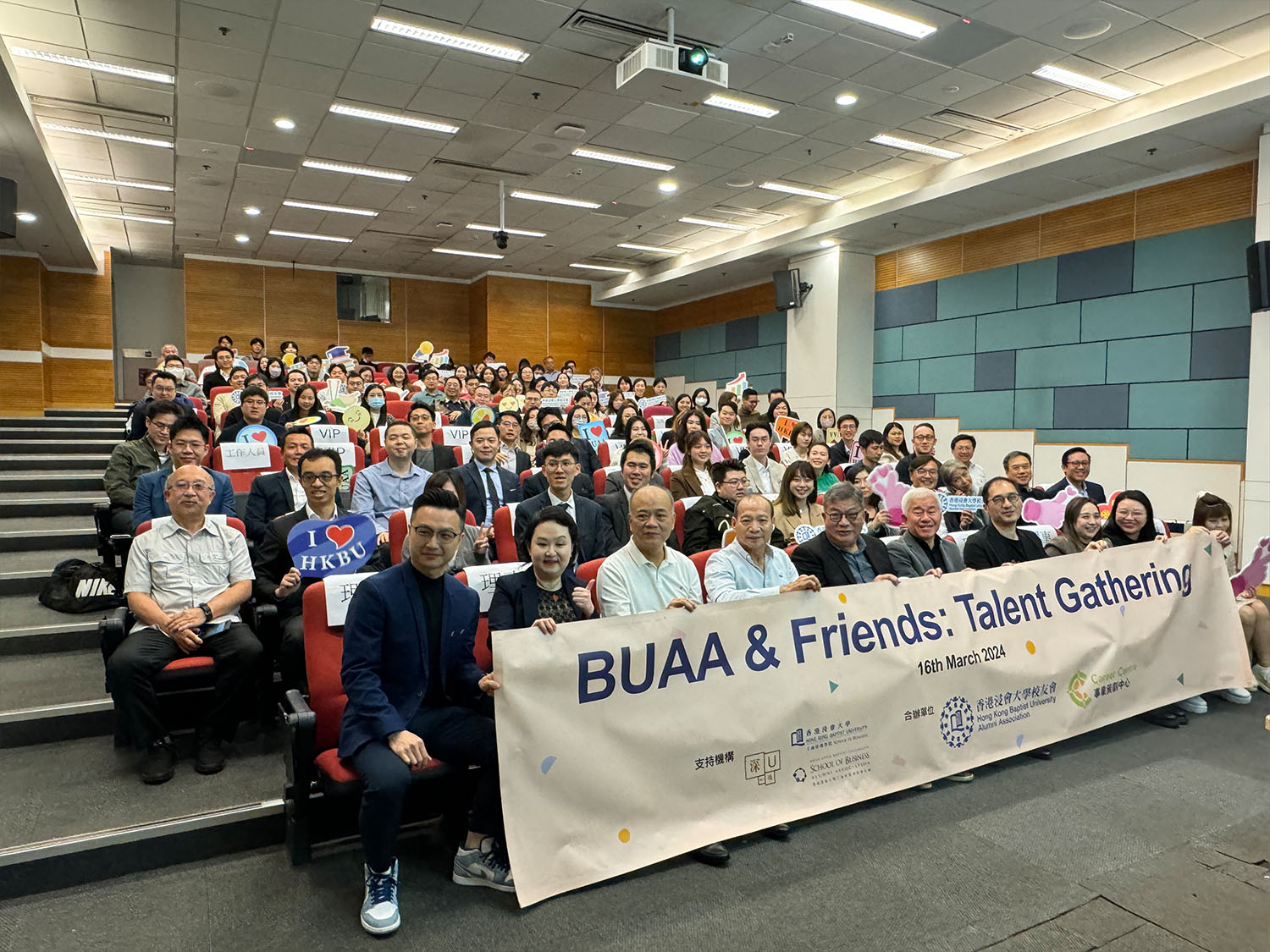

Exploring AI in learning
On 23 November 2023, students gathered for an engaging, hands-on workshop titled "Tell Your AI Tales", hosted by the Centre for Holistic Teaching and Learning. This interactive workshop focused on students’ stories about using AI in their learning. The workshop revealed diverse perspectives, from using AI for brainstorming and preparing lessons to over-reliance and academic integrity. Students emphasised the necessity to craft effective AI prompts and integrate these tools into their learning. The workshop underscored the evolving role of AI in education and the importance of balanced and thoughtful application.
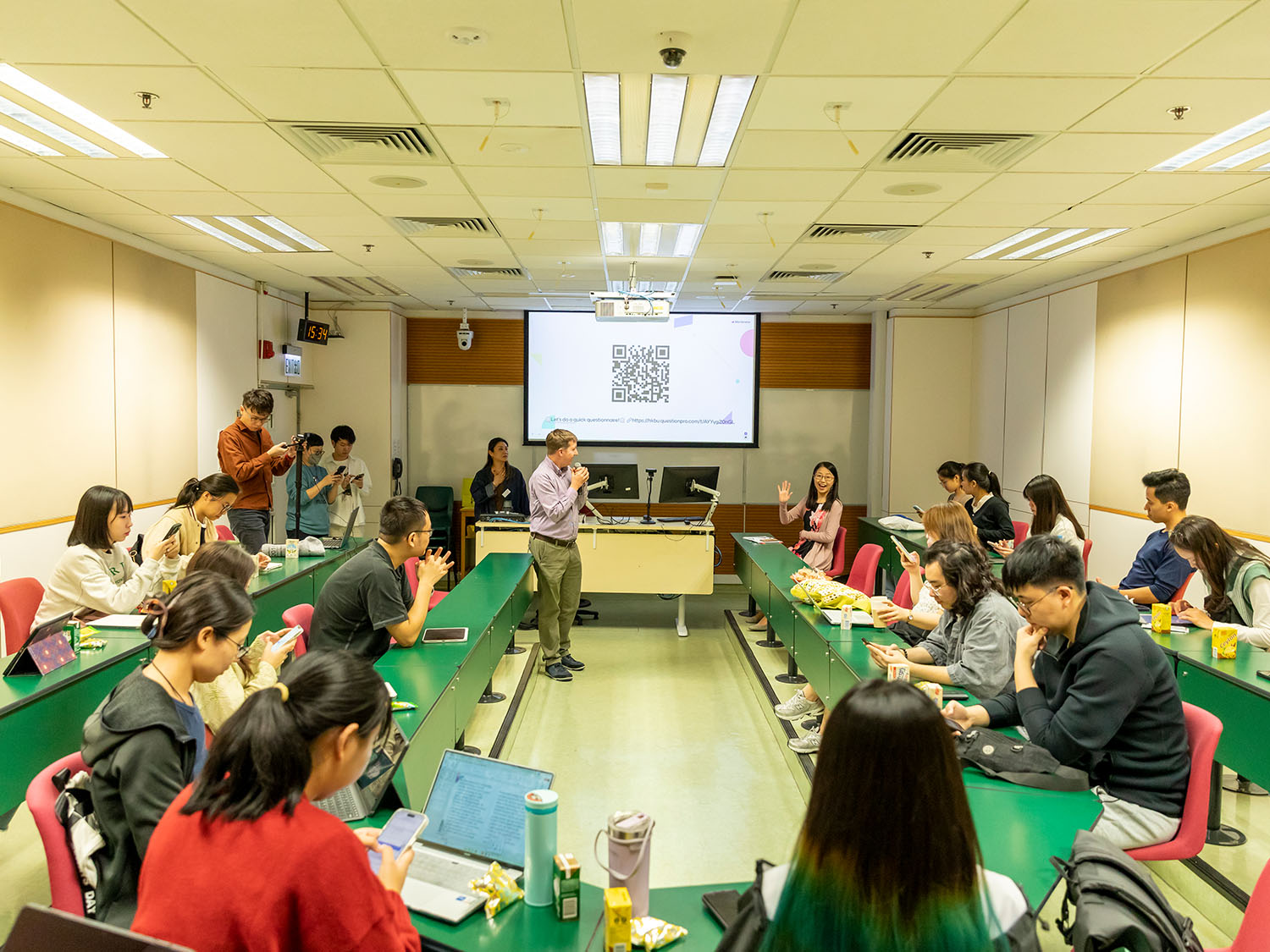

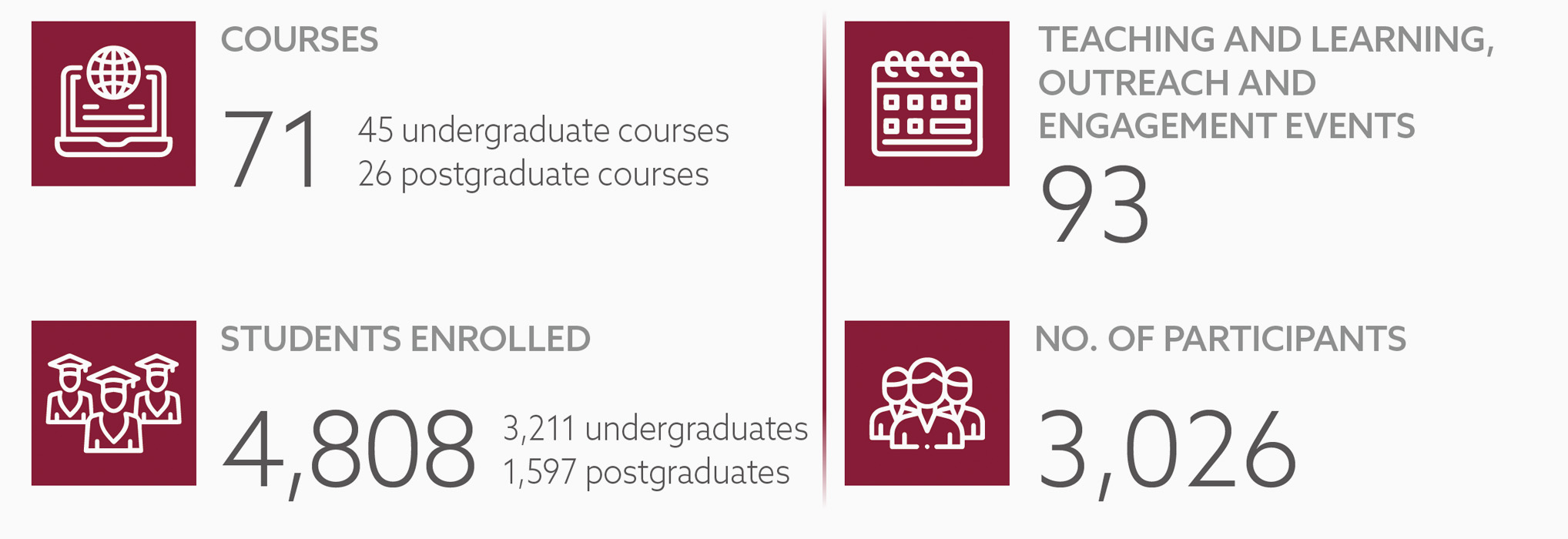

Department of Management, Marketing and Information Systems
Authors: Muhammad AMIN, Kimmy W. CHAN*, Amjad SHAMIM, Zulkipli Bin GHAZALI, Fong-Woon LAI
*Corresponding author
The research explores how companies in the service industry can better involve their frontline employees in creating valuable experiences for customers – a process known as value cocreation (VCC). The study focuses on the ability of the company to facilitate interactions (interaction capabilities), the motivation of employees to engage with customers, and the role of supervisors with proactive personalities in providing opportunities for employees. The findings show that a company’s ability to interact effectively and positively influences employees’ motivation to cocreate value. Moreover, when supervisors are proactive, this effect is even stronger, leading to more active employee involvement in VCC. This research is significant because it helps companies understand how to better engage employees in VCC, which can lead to more sustainable and inclusive economic growth – aligning with the United Nations' goal of decent work for all.
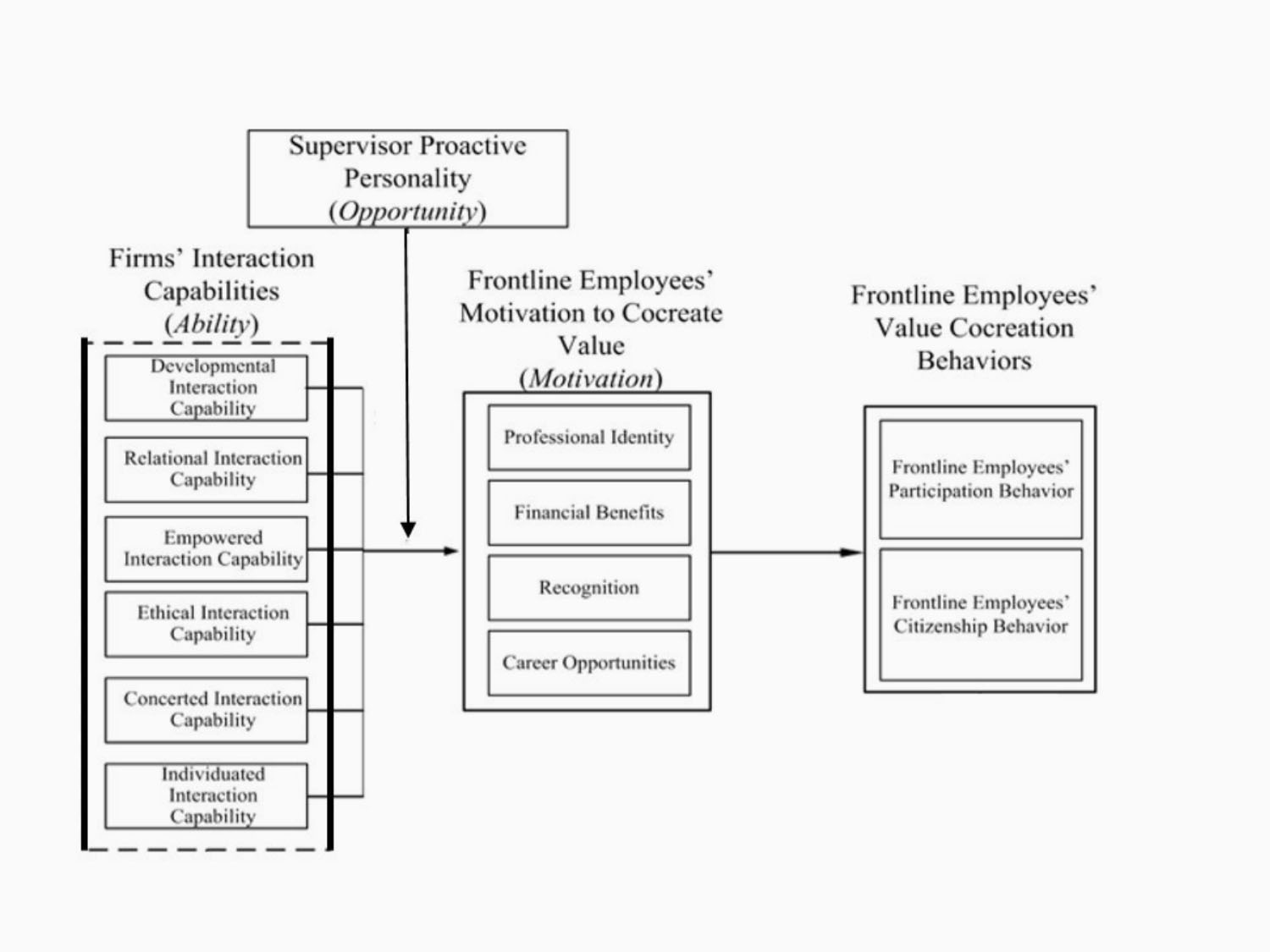

Catalytic pyrolysis of plastic waste for liquid fuels production
Department of Biology
Authors: CAI Wenfei, Reeti KUMAR, Zhi ZHU, Sunita VARJANI, Zhong-Ting HU, Jonathan Woon-Chung WONG, Jun ZHAO*
*Corresponding author
The research conducted on developing Ni/Al-MOF-derived catalysts for pyrolysis of waste surgical masks addresses the pressing issue of plastic waste management and sustainable resource utilisation. By converting polypropylene-based waste, particularly from surgical masks, into valuable gasoline or diesel range chemicals, this study offers a practical solution to reduce environmental pollution caused by plastic products. The optimised conditions and efficient catalytic performance of the Ni/Al-MOF-derived catalysts demonstrate a promising approach to convert plastic waste into liquid fuels, promoting recycling practices. This innovative technology not only addresses environmental challenges but also creates opportunities for economic growth through sustainable waste management practices.
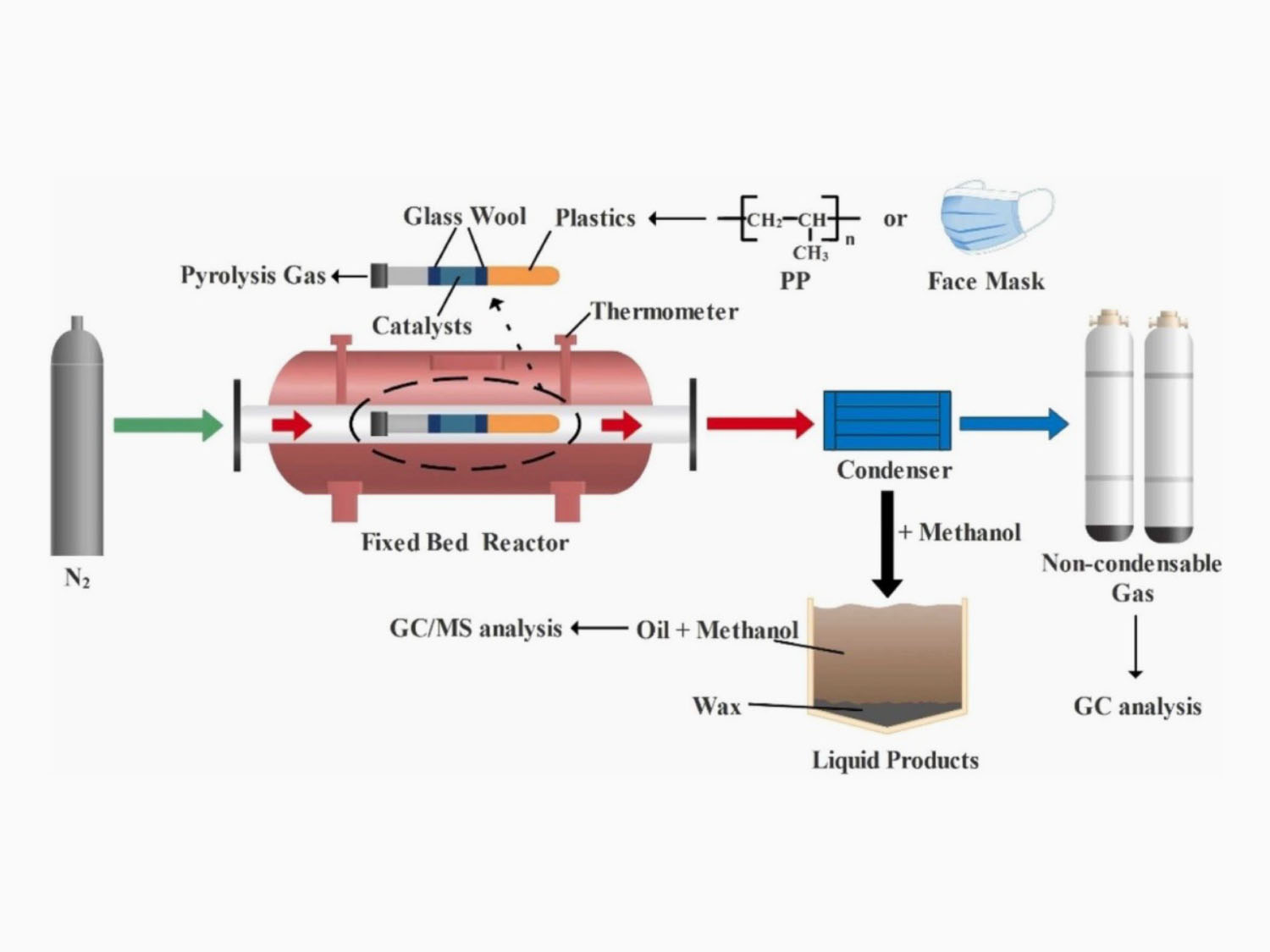

Investigating object sorting problem for smart garbage application
Department of Computer Science
Authors: Wing Shiu MA, Shing Hang YUEN, Chi Nam KEUNG, Mehak Fatima QURESHI*, Umair Mujtaba QURESHI, Zuneera UMAIR
*Corresponding author
The research addresses the dual challenge of industrial growth and environmental sustainability by leveraging advanced AI technology to develop a smart recycling garbage bin. This innovative solution aims to mitigate the negative environmental impacts of industrialisation, such as increased waste generation and pollution, while promoting economic development. By effectively sorting recyclable materials like glass, paper, metal, and plastic, the smart bin contributes to sustainable waste management practices. Utilising a pre-trained Tensorflow model, the research achieves a high overall accuracy rate of 91% in classifying garbage images, demonstrating the efficacy of AI in enhancing recycling processes. In alignment with Sustainable Development Goal 8, the project promotes sustainable economic growth, responsible consumption, and production, and the integration of technology to address environmental challenges. This initiative exemplifies a forward-thinking approach that seeks to harmonise economic progress with environmental protection for a more sustainable future.
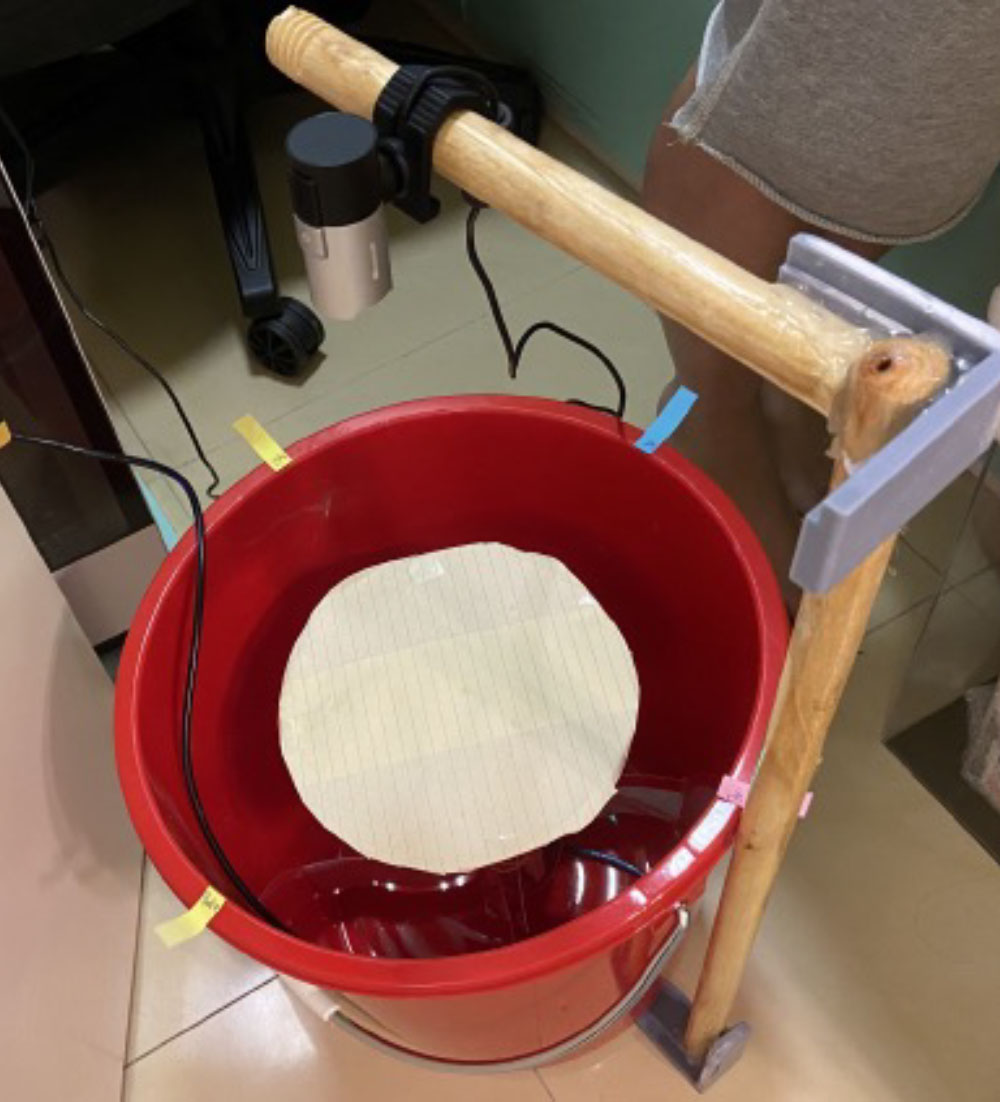

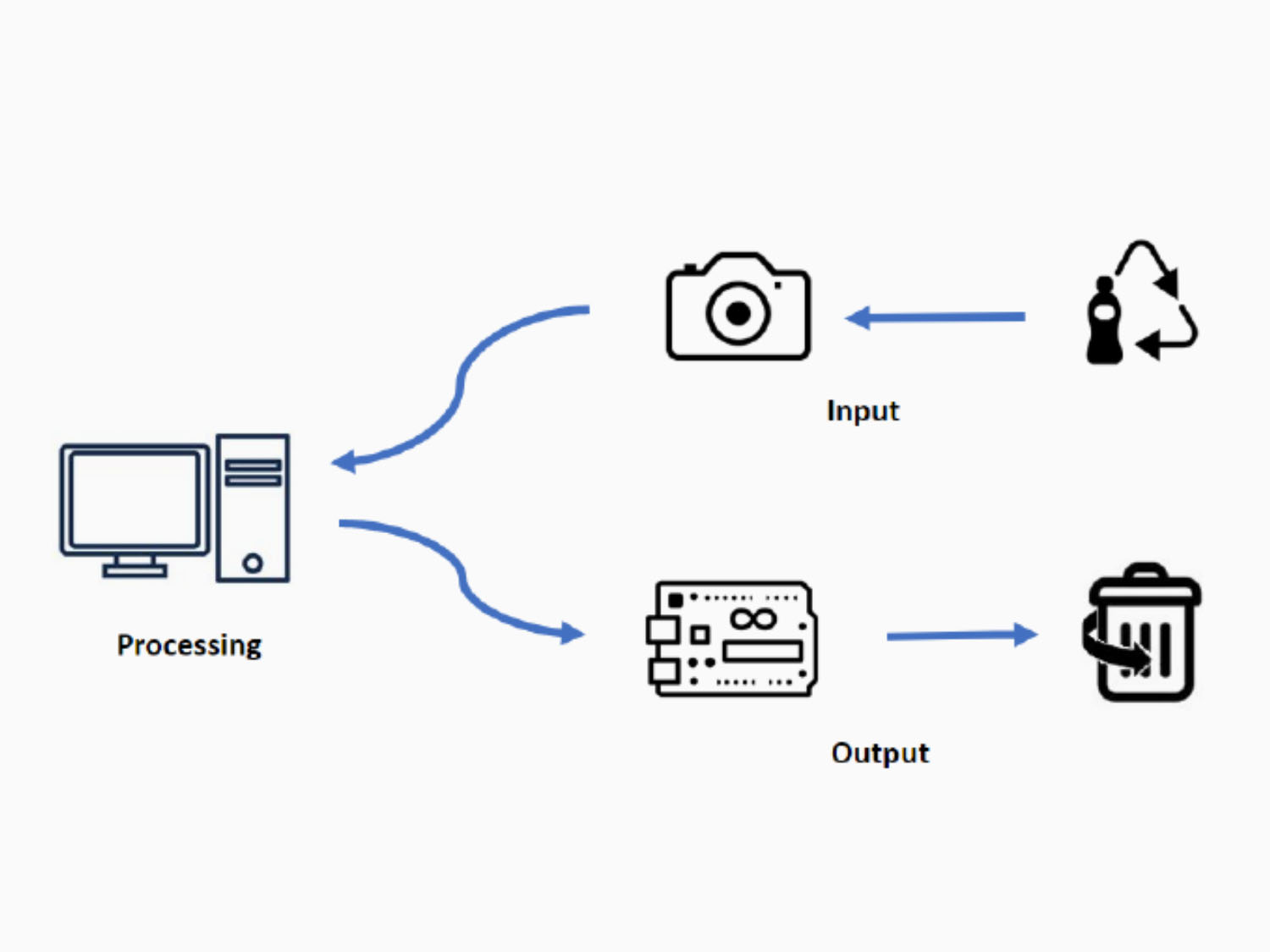

HKBU is an equal opportunities employer, adopting a single set of selection requirements and a consistent performance assessment and reward system for all staff, regardless of factors such as family background, family status, gender, place of origin, ethnicity, race, disability, age, faith heritage or sexual orientation.
The University's Annual Performance Review mechanism for eligible full-time staff members aims to link staff performance and achievements to appropriate rewards and salary adjustments. Ongoing communication and alignment between reviewers and reviewees are important throughout the process.
The University has an Equal Opportunities Panel that handles grievances, complaints, or allegations related to discrimination or harassment in a strictly confidential manner, as per the Policy Statement on Equal Opportunities.
Minimum wage compliance
The University strictly complies with the statutory minimum wage under Hong Kong's Minimum Wage Ordinance. Its salary scales are reviewed regularly to ensure alignment with the Ordinance and to provide a reasonable compensation level for staff living in Hong Kong. Following the recent adjustment to the minimum wage in 2023, the University reviewed its salary ranges and increased the minimum salary for non-teaching staff in certain bands accordingly.
Safeguarding outsourced workers' rights
HKBU has a Policy on Anti-Slavery and Equivalent Rights for Outsourced Workers to ensure fair wages, competitive benefits, and proper working conditions for all outsourced personnel. The policy requires suppliers to provide fair wages, competitive benefits, and working conditions that meet statutory requirements. Suppliers must also observe principles of human rights and equal opportunities, without discrimination in hiring and employment practices. Additionally, suppliers are expected to maintain a safe and healthy work environment with appropriate training for workers, treat workers with respect and avoid all forms of exploitation, and affirm freedom of expression while establishing communication channels to engage worker feedback.
Occupational health and safety
HKBU's commitment to employee health and safety is evident through its comprehensive policies and initiatives. The University's Health, Safety and Environment Policy serves as the foundation for ensuring the well-being of its workforce. As part of this commitment, all full-time staff are required to complete compliance training, which includes a module on the Occupational Safety and Health Ordinance. The training is extended to part-time staff as well, stressing the importance of occupational safety and health for all employees.
HKBU also places great emphasis on promoting the physical and mental well-being of its workforce. The University has organised various seminars and informative sessions on physical well-being, mental health, mindfulness and stress release; and participated in the Joyful@Healthy Workplace Charter, which aims to cultivate a joyful and healthy work environment. Having successfully become one of the signatories of “Good Employer Charter 2024” and its featured theme “Supportive Family-friendly Good Employer”, the University has pledged to be an employee-oriented employer by adopting effective human resource management practices that demonstrate care for employees, offer benefits that are better than statutory requirements, and promote good communication with staff.